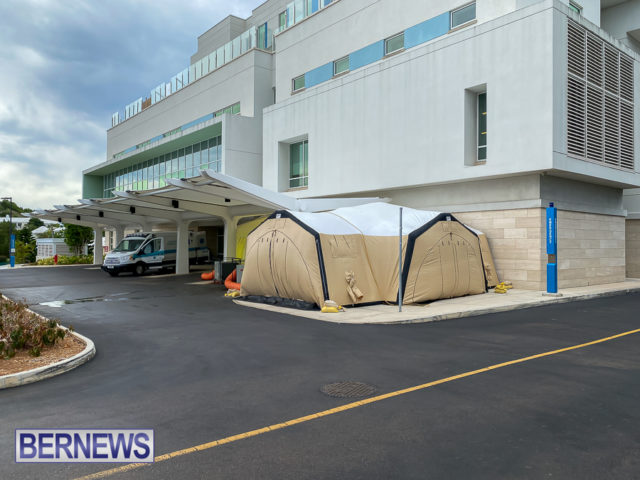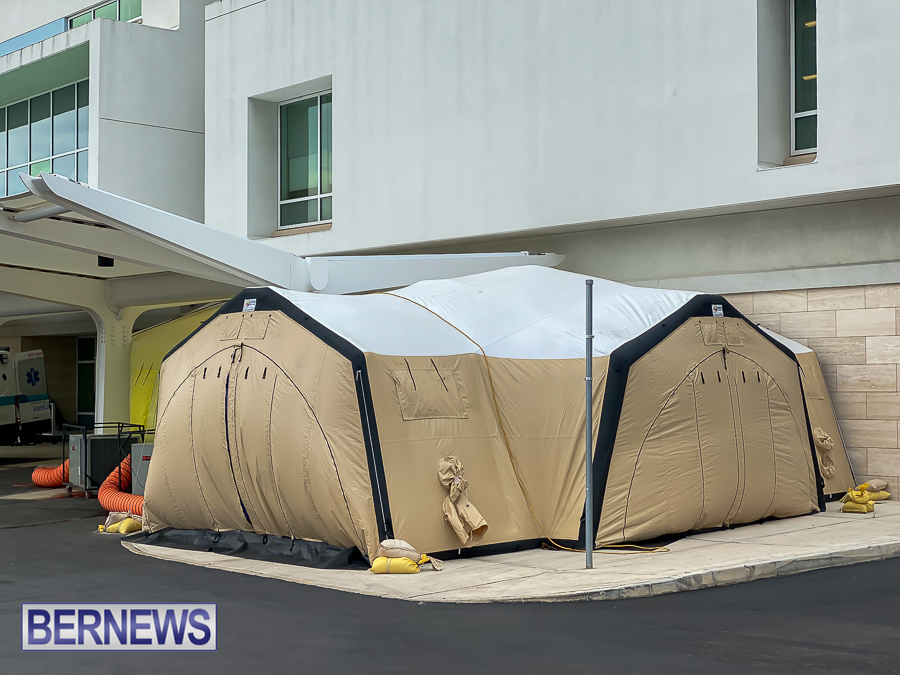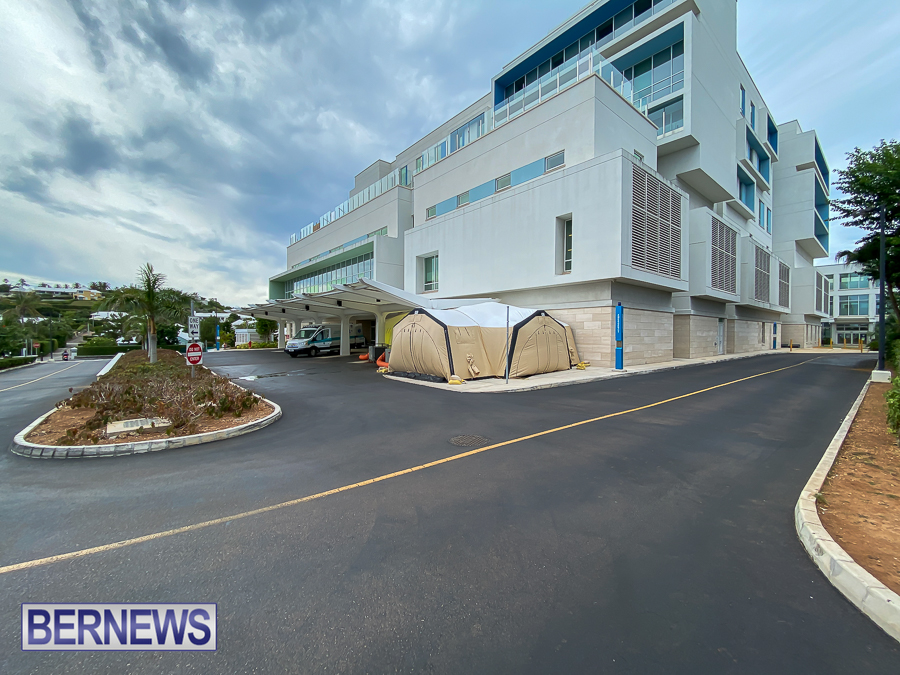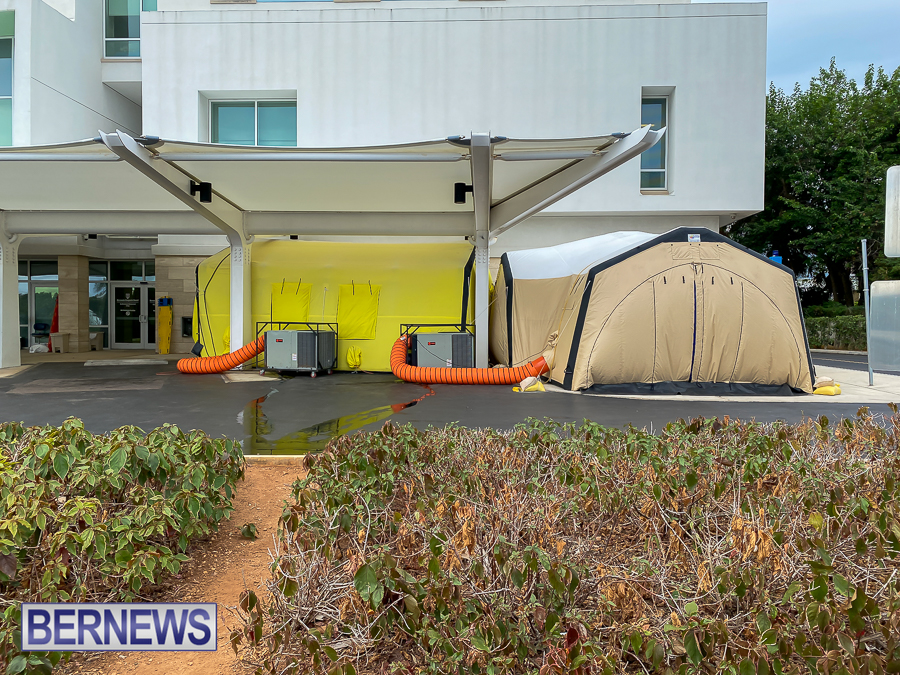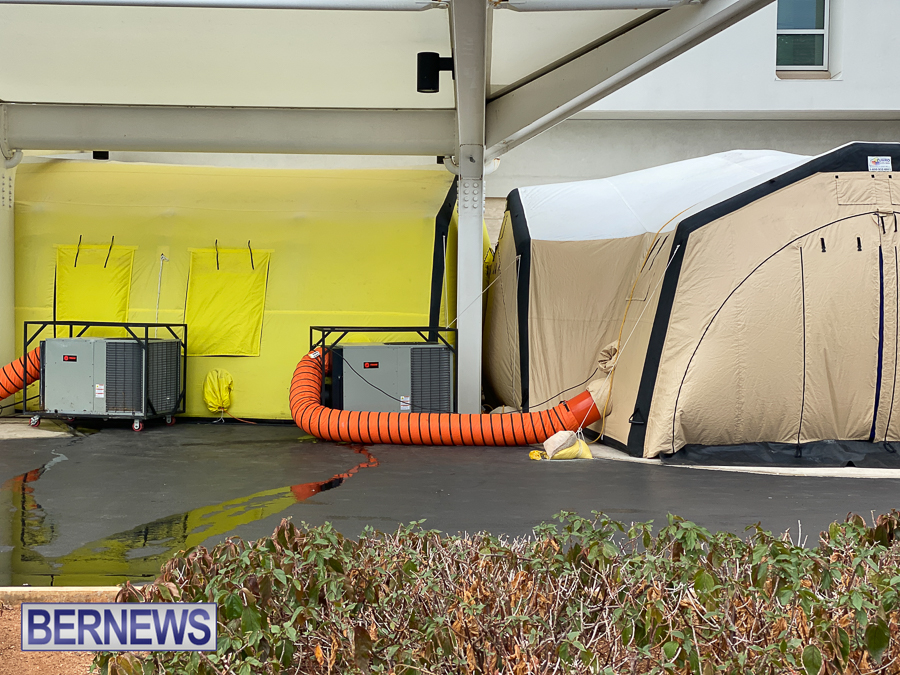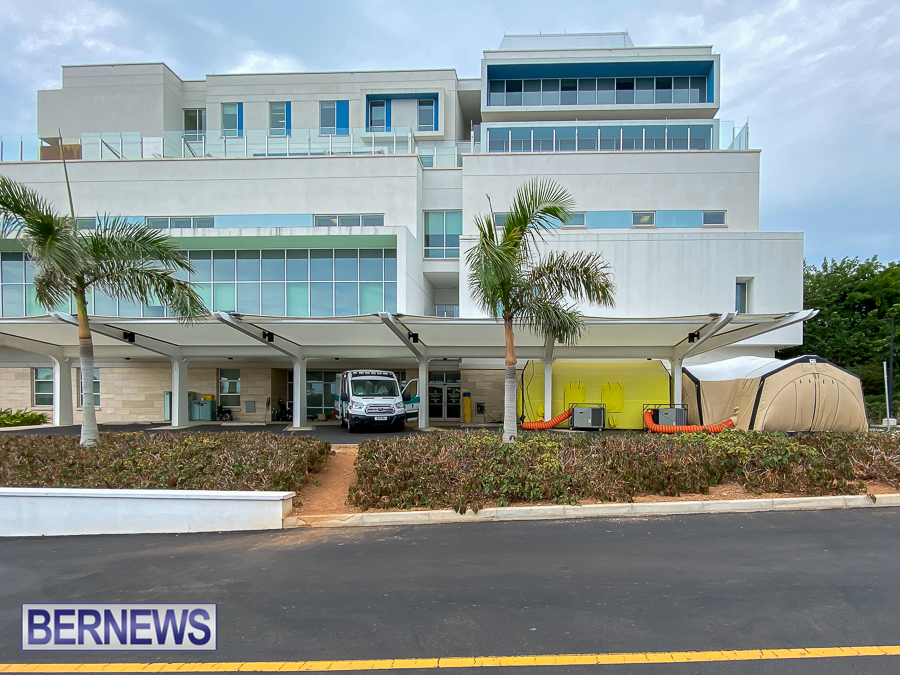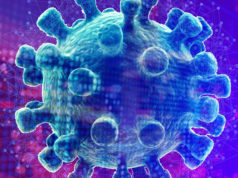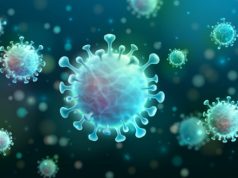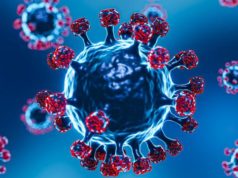The “rising numbers of hospitalisations and especially critical care patients is a worrying trend,” the BHB Chief of Staff said, explaining that they “have prepared a separate patient flow to triage and assess Covid-19 patients in the Emergency Department using a medical tent.”
This comes as the island is experiencing a spike in Covid cases; the most recent statistics, which were released on Friday, said there were over 600 active cases, with 28 people in hospital. New Covid results are expected to be released today, and it is likely they will be high.
Due to the rising Covid hospitalisation numbers, the Bermuda Hospital Board [BHB] have now moved up to ‘Alert Level 3’ [out of 4]. The Alert Levels are are internal status indicators for BHB staff. The hospital went to Alert Level 3 in Spring of 2020, managed the last surge at Alert Level 2, were able to return to Alert Level 1 over the summer, and are now back at Alert Level 3.
BHB Chief of Staff Dr Wesley Miller told Bernews, “The rising numbers of hospitalisations and especially critical care patients is a worrying trend, and we feel for our staff who are working tirelessly to care for some very unwell individuals and for all patients whose elective care has been postponed so that we can manage the surge.
“BHB ceased visitation to long term care and acute care units last week to try and reduce the footfall in the hospital, and suspended elective surgeries to create more capacity to care for the growing number of Covid-19 patients. We now have prepared a separate patient flow to triage and assess Covid-19 patients in the Emergency Department using a medical tent. We have reached out to the local physician community to see if there is interest in assisting with the triage and assessment.
“We should stress that while there is a high number of Covid-19 patients needing hospital care right now, many people can manage at home. People who suspect or know they have Covid-19 symptoms can use BHB’s Covid-19 Symptom Checklist which is on BHB’s and Government’s websites to work out their risk, and whether they need medical attention.
“People with mild symptoms can call their GP for advice. If they feel symptoms are very serious and they need Emergency treatment, they must call 239-1301 first before turning up. COVID-19 patients who need hospital or emergency care will be discharged as soon as they can manage their symptoms at home. They do not need a negative test before they are discharged.
“As the pressure from Covid-19 patients increases, more of our services are being impacted. While treatments such as dialysis and chemotherapy are continuing, non-urgent appointments with medical consultants, or allied health staff, such as physiotherapy, are being postponed to keep the numbers of people coming and out of the hospital down. Urgent or emergency consultations and appointments are continuing at this time if necessary. Where possible we will use telemedicine.
“While we can increase our critical care bed count to 30, and increase our acute bed space by about 50, this is a peak number based on physical space and supplies. To sustain it for any length of time would cause burn out and exhaustion for our staff. We are still dealing with medical emergencies, from strokes, heart attacks and accidents, so managing the Covid-19 surge as well as providing care to people who have non-Covid-19 care needs adds significantly to the pressure we are under.
“People may feel tired about the message of getting vaccinated, but time is running out to get the protection they need with the numbers in the community rising so quickly. Our natural immune system, when it has learnt to recognise the virus through vaccination, can fight this coronavirus virus off faster and more effectively. This speed protects us from the worst symptoms of the disease.
“The delta variant is highly contagious, and the same pattern is being seen in Bermuda as the rest of the world – people without the protection of vaccination are frequently doing much worse. We also need to follow precautions, including wearing masks that cover our mouths and noses inside, keeping physically distant and following all public health guidelines and instructions. We must do all we can to care and protect each other through this surge and reduce the transmission. Together, we can save lives and keep each other safe.”
Photos of the tent set up at KEMH:


